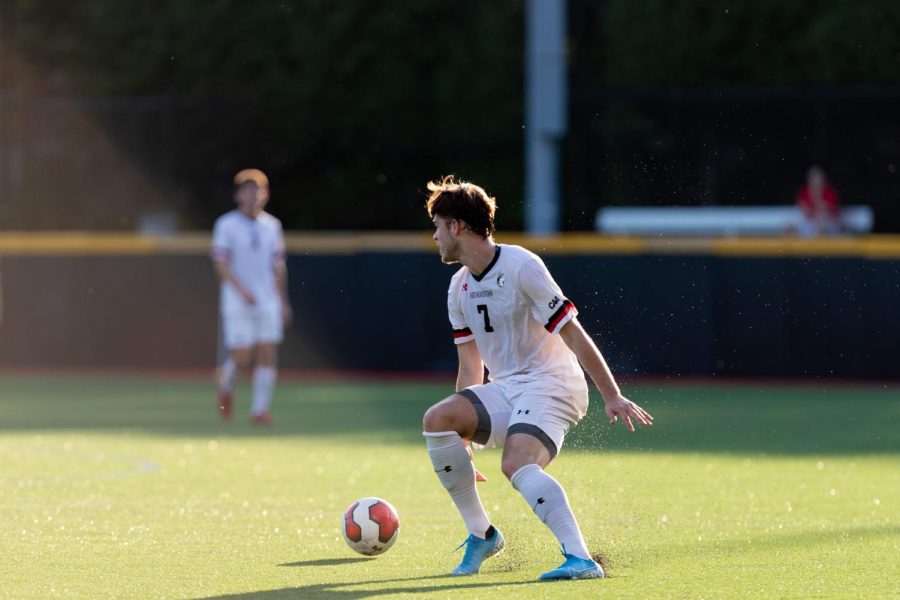Student athletes balance co-op with season-long grind
Junior midfielder Dan Munch handles the ball during a match vs Charleston during his season in the fall.
February 6, 2020
Even with their packed schedules, student athletes can still take advantage of co-op, one of Northeastern’s most renowned opportunities — although at times, they have special factors to take into account.
Multiple student-athletes reported they cannot venture outside of the Boston area due to year-round practices or games. Despite this condition, many student athletes do not feel restricted.
“Northeastern is in the center of Boston,” said Daniel Munch, a third-year business administration major on the men’s soccer team. “There’s so many opportunities within the city. There’s countless opportunities to take advantage of, so I don’t think I was limited at all.”
Most student athletes were initially drawn to NU because of their ability to go on co-op with their demanding athletic schedule. However, it extends their weekdays, with either early morning or late evening practices, in addition to working a nine-to-five. Regardless of their schedule adjustment, athletes find their co-op experiences to be rewarding, and it allows them to improve their time management.
“I learned early on that when I’m at work, I’m at work,” said Rick Burroni, fourth-year business administration major and pitcher for the men’s baseball team. “Once 4 [o’clock] hit and I left, I knew it was baseball time.”
Depending on their athletic season and schedule, students may encounter difficulties when negotiating their work hours. Working Fridays or night shifts, for example, are often caveats that Bailey Coyne, former NU women’s hockey athlete, and her hockey teammates had to address.
Coyne reflects on her own experience going through the co-op process, recalling how one residential mental facility offered her a night shift, which she ultimately denied.
“I was like ‘I can’t do that. I have to practice at 6 a.m., so I can’t work overnight,’” she said.
For the men’s hockey team, according to a former player, there is one additional restriction: all players have to co-op over the summer. Their season, running from September to April, is among the longest of any sport at NU, and they usually have practices around 2 p.m. — right in the middle of a typical workday.
“Co-ops wouldn’t let you do that,” said Patrick Schule, former NU student and men’s hockey player. “They wouldn’t let you just leave every day at 1 o’clock.”
Northeastern’s summer options are often more limited, according to Schule. With fewer opportunities through the university, some players are forced to make connections and jobs on their own.
“It’s kind of disappointing in the sense that you don’t go through Northeastern to experience [co-op],” Schule said. “… But honestly, it makes it more realistic, considering you don’t have the Northeastern co-op portal to go through.”
Nonetheless, student athletes feel coaches are supportive of their academic aspirations and are accommodating toward their co-op schedule, so they expressed little worry in applying for co-op.
“My coach was super excited for me to get out there on my first one, and he was just as excited for me to reapply again for my second co-op,” Munch said.
While co-op season can split up the team during weekly practices or lifting sessions, athletes find that co-op has improved their team’s dynamic. The older players often share their co-op experiences, which creates a sense of “mentorship” with the younger players, according to Munch. This mentality was reported from other teams, as well.
“In the past, I have been influenced by the girls who have co-opped while I was in classes — it made me so excited,” said Becca Gaddy, third-year journalism major and field hockey defender. “I think it changes our team dynamic for the better because we get to utilize each other’s experiences and bond over them.”
Overall, most student athletes feel their experiences with co-op are very similar to that of their fellow classmates.
“Getting used to that nine-to-five is a bit of a grind, but that goes without saying and without being an athlete,” Munch said.







